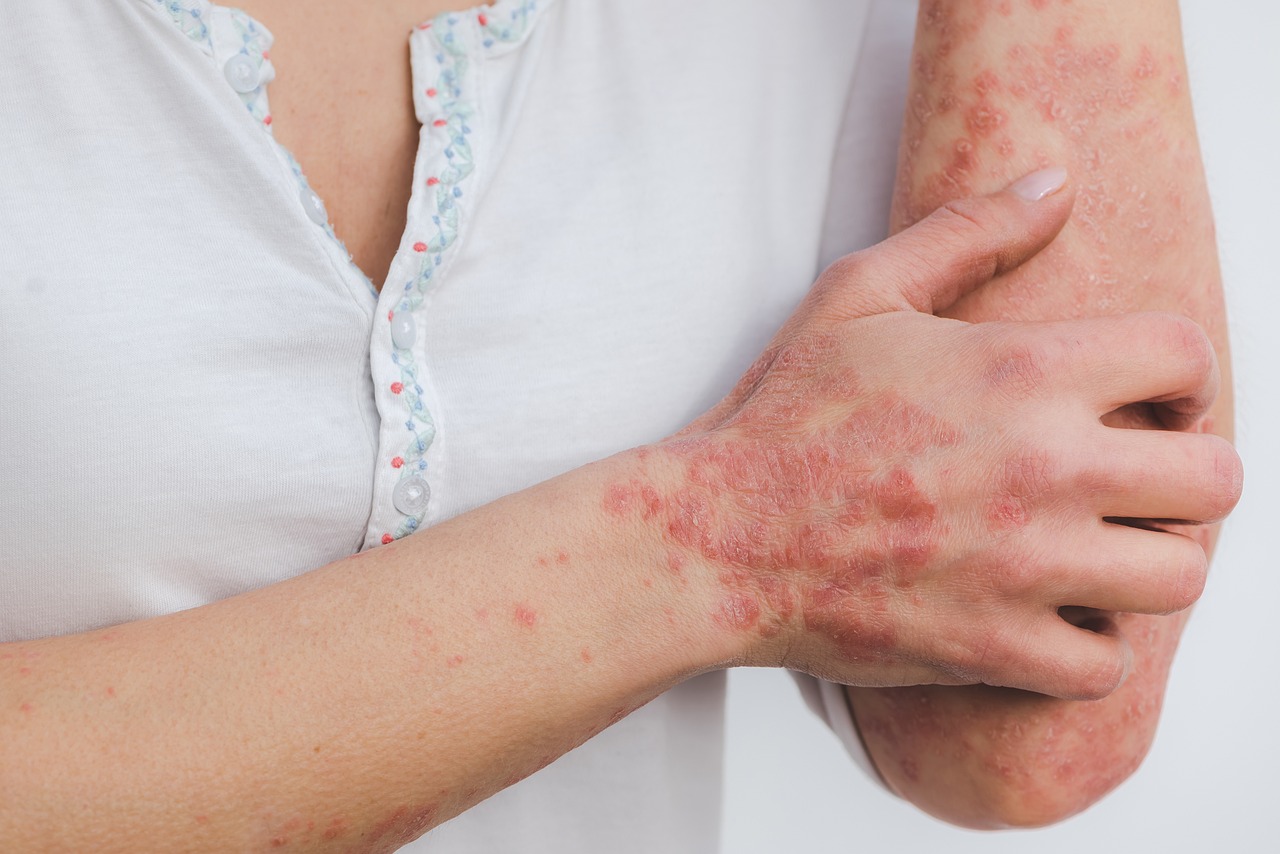
Psoriasis is a chronic autoimmune condition that affects the skin, causing red, scaly patches to develop. While there is no specific diet that can cure psoriasis, some dietary adjustments may help manage the symptoms and improve overall well-being for individuals with psoriasis. Here are some general guidelines for psoriasis patients when it comes to their diet:
- Maintain a well-balanced diet: Focus on consuming a variety of nutrient-rich foods. Include plenty of fruits, vegetables, whole grains, lean proteins (such as poultry, fish, tofu, legumes), and healthy fats (found in sources like avocados, nuts, and seeds).
- Omega-3 fatty acids: Foods rich in omega-3 fatty acids, such as fatty fish (salmon, mackerel, sardines), walnuts, flaxseeds, and chia seeds, may have anti-inflammatory properties and could potentially help reduce psoriasis symptoms.
- Avoid trigger foods: Some individuals with psoriasis find that certain foods can exacerbate their symptoms. While trigger foods can vary from person to person, common culprits include alcohol, spicy foods, processed foods, red meat, and high-fat dairy products. It can be helpful to keep a food diary to identify any potential trigger foods that worsen your symptoms.
- Maintain a healthy weight: Obesity has been linked to an increased risk and severity of psoriasis. By adopting a balanced diet and engaging in regular physical activity, you can work towards achieving and maintaining a healthy weight.
- Stay hydrated: Drink plenty of water to keep your body hydrated, as this helps maintain healthy skin. Water is essential for overall health and can contribute to the skin’s elasticity and resilience.
- Consider vitamin D: Some studies suggest that vitamin D supplementation or increasing its dietary intake may have a positive impact on psoriasis symptoms. Consult with your healthcare provider to determine if vitamin D supplementation is appropriate for you.
- Consult a healthcare professional or dietitian: If you have specific concerns about your diet and how it relates to your psoriasis, it’s advisable to seek guidance from a healthcare professional or registered dietitian. They can provide personalized advice based on your unique needs and help create a diet plan that works best for you.
Remember, it’s important to approach dietary changes as part of an overall management plan for psoriasis. While diet can play a role in managing symptoms, it should be combined with appropriate medical treatment and lifestyle modifications recommended by your healthcare provider.
See More on Video

The Psoriasis Strategy™ By Julissa Clay This eBook is known as a reliable source to help you in getting your psoriasis cured day by day. Thousands of people have used it to cure their irritable and annoying skin condition by following the instructions provided in this eBook.